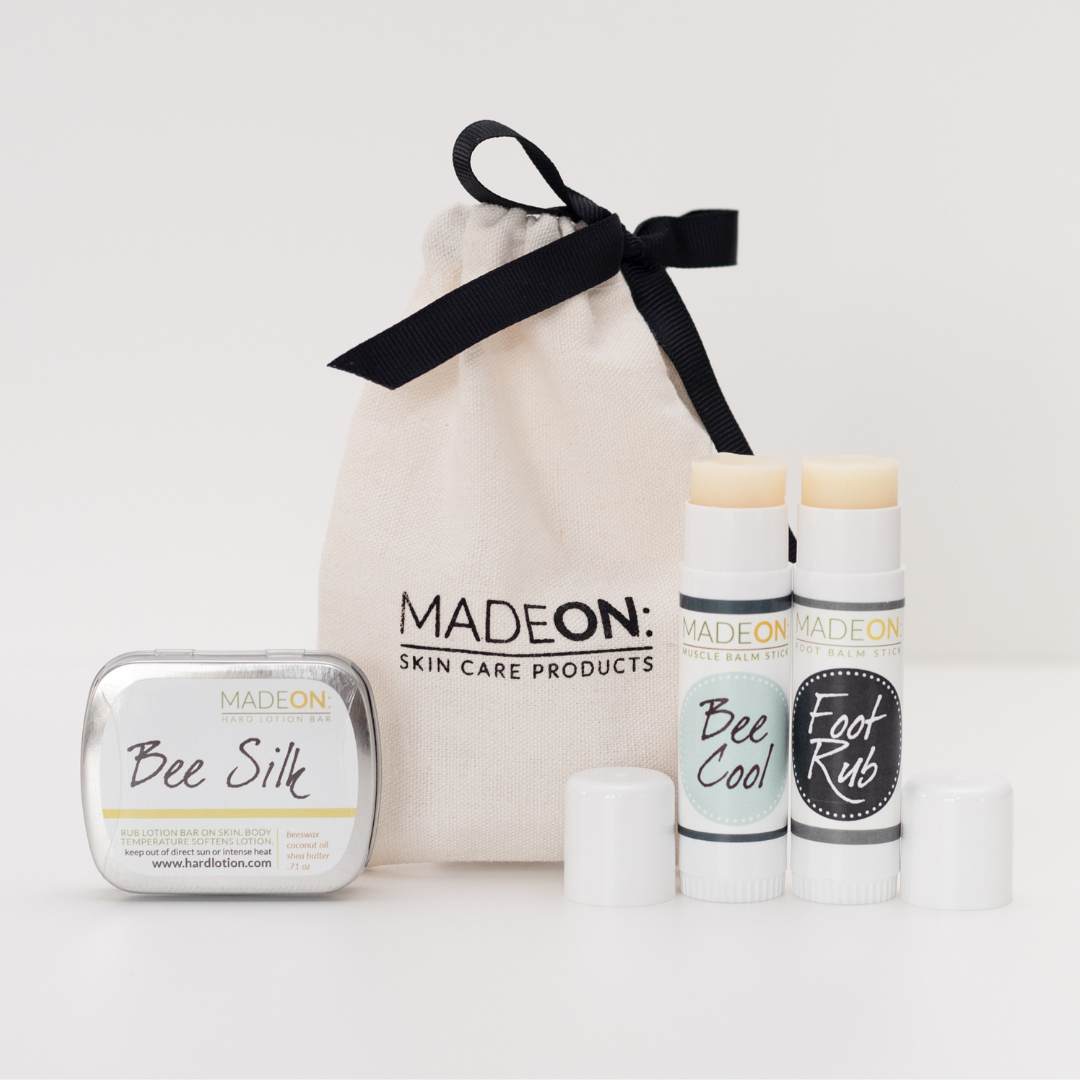HOW TO RELIEVE SORE MUSCLES AFTER A WORKOUT
You've FINALLY dedicated yourself to showing up and working out. It might have taken some deep self-talk about avoiding holiday pounds, some prepping like putting your gym clothes and tennis shoes right by your bed, and a promise to reward yourself afterwards with a cold, hydrating coconut water (hello, electrolytes!) but several hours later, those squats and deadlifts are making you pay for it. The deep muscle soreness has set in and it HURTS to walk across the room.
I LOVE weight-lifting 4-6 times a week at the gym, but it wasn't always this way for me. I've literally built it into my morning routine and now my body craves it every morning. But getting into the habit, or going back to it after having time off (due to illness or having a baby), or... more likely lately, either bumping up the weights and/or changing my routine does give me the muscle soreness that sometimes makes it impossibly difficult to even change my clothes.
Help your Sore Muscles with a Mindset Switch:
Delayed Onset Muscle Soreness (DOMS) creeps up 8 - 72 hours after an intense workout. Be proud of yourself! It hurts, but you worked out!
The intense muscless soreness happens after you're back in the exercise game, or when you're switching up your regular routine. Know that it won't always hurt this badly.
It may be a message your body is telling you that next time, don't work it quite this hard. Be grateful for these warnings - your body is talking to you.
Know that what helps sore muscles involves a bit of prevention and a MadeOn product called BeeCool Muscle Balm (we've got you covered!) You will get fast relieve from the cooling effect of the menthol in our muscle balm.
Steps to take before (and during) a workout to prevent sore muscles
Warm up before you work out. You might feel like a dork walking into a fitness class as a newbie and going straight into stretching while your classmates are chatting about their weekend plans, but trust me, you'll be thanking yourself later. Whether you're about to take a strength training class or you're doing your own weight-lifting from what you found on YouTube, always start with stretching the muscles you plan to work.
Don't do too much, too fast. This gets me every time, especially if I'm taking a class and trying to keep up. If you aren't used to the exercise, slow down and get help on form. Proper form is SO IMPORTANT for preventing soreness, AND injury.
Know the movement. If you aren't using a coach or teacher, then take the time to follow a YouTube tutorial to correctly lift the weights or perform the exercise. Again, improper form is a terrible habit that will hurt you in the long run.
Lift slowly both ways. If you're doing a bicep curl, go slow on the curl, but also on the return (lowering the weight back down). You'll get the most benefit for muscle strengthening. BUT, know that this also leads to more muscle soreness, so you may want to wait on this until you're ready for more.
5 steps to relieve sore muscles after a workout
Keep moving after the workout. It's not to keep your heart rate raised, but it is to bring oxygen and lymphatic fuilds to the muscles. This is all part of recovery and helps relieve the pain.
Hit the sauna! The heat of the sauna will help your muscles to relax, relieving the muscle tension. The sauna increases the blood circulation which helps to carry oxygen to the oxygen-depleted muscle. That's all part of the healing process to make your muscles stronger. Drink plenty of water when using a sauna. This is my favorite reward after my workouts.
A topical remedy is better than an oral one when it comes to specified pain relief. Try our BeeCool Muscle Balm to bring an immediate cooling effect to the sore area. You may need to repeat this 2-4 times throughout the day, but you'll find this a much healthier approach to the pain than popping the pain relief medicine.
Eat protein and carbs within an hour of working out. The protein will help you build and repair damaged muscles, and the carbs will help you replenish glycogen, which is what you need to recover faster, according to Stephanie Hnatiuk, R.D., a sports nutrition specialist and dietitian.
You need to slow down if you're feeling fatigue, irritability, or lack of motivation all the time in addition to the soreness. You might be overtraining.



